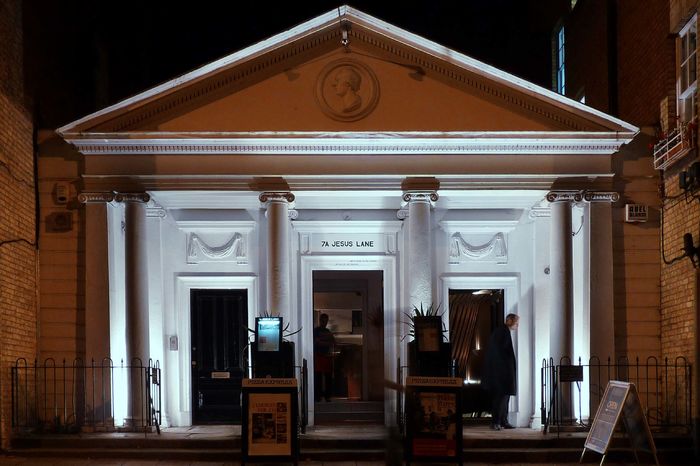Self-care has always been about community, not individuals
Clarissa Salmon reflects on radical activism and self-care

Joining Cambridge Climate Justice late in my undergrad, I often find myself wishing I had been a part of it from my first year. The concept of activism used to be intimidating to me. I just couldn’t imagine myself at protests or occupations. Taking the plunge in late 2022, I’ve realised that good activist spaces don’t expect a fully formed campaigner, but shape one. It’s a mutually beneficial process: when taking on teaching roles, experienced campaigners learn just as much as the new participants they’re guiding.
Most vitally, community building itself locally enacts the large-scale social changes that activists desire. The radical structures of a community founded upon equality, empathy, and compassion form a microcosm of a socially just future. These activist spaces pose a challenge to the global structure of capitalism which venerates individualism. Capitalism tells us to take care of ourselves, to hoard wealth and climb the ladder, instead of looking at the people who are oppressed daily in order to sustain the system. Social justice campaigners work to imagine something completely different, and activist spaces create a new way of co-existing: the social bonds of the community.
Talking to other campaigners at Cambridge Climate Justice about what activism means to them, two themes emerge. Will Bajwa says “taking climate action has introduced me to wonderful people; and provided me with a new understanding, perspective and love of life: it is that life I will fight to defend through climate action.” Mia Eldor-Levy tells me “climate action is a selfish action in a way for me really. It reminds me that I can be a part of creating big changes, organising, protesting, and creating a better world for us all.” Both highlight that campaigning allows us to transform despair into empowerment, and suggest that being part of activist communities enriches life. While Mia uses the term selfish to describe how activism improves her mental health, I think what she’s describing might be closer to self-care in its original form as community preservation.
“The radical structures of the community form a microcosm of a socially just future”
The notion of self-care has been so commercialised in the 21st century that its radical origins have dissipated amidst a fog of spa gift cards and travel packages. However, the term was actually conceived as a pillar of activist community building. First used in the medical treatment of psychiatric patients, self-care was put into the vernacular in the 60s and 70s by the Black Panthers. They used the term to describe the need for mental and physical healthcare services for black people in their struggle against systemic racism, linking health to poverty and housing provision. The Black Panthers established thirteen free healthcare clinics in the US, and formally centred health policy in their Ten Point Program. They built community self-care as a form of resistance to the violence and death caused by white supremacy.
Going into the 1980s, Audre Lorde provided a definition for self-care in her 1988 book, A Burst of Light: ‘Overextending myself is not stretching myself. I had to accept how difficult it is to monitor the difference. […] Caring for myself is not self-indulgence, it is self-preservation, and that is an act of political warfare’. Lorde penned this amidst her battles as a black lesbian woman fighting cancer.
Rather than instructing a recourse to individualism, Lorde is understanding that she cannot continue her social justice work without rest. Much like the Black Panthers, she models self-care as resistance to racism through safeguarding the physical and mental well-being of activists and oppressed communities.
“Activism is about unapologetic happiness, a slap in the face to oppressive systems”
I am not seeking to romanticise activism or erase the danger campaigners frequently encounter. Fighting for your life is not going to be liberating, calming and joyful all of the time. Yet this is precisely why community led self-care is so necessary, both in the 60’s and now, especially for people most affected by the systems we want to change. To be mutually caring, campaigners must respond to their own privilege. XR’s tactic of getting its activists arrested has come under fire for not acknowledging that arrests are life-threatening for people of colour. Mutual care in activist spaces means deconstructing structures of oppression within our practices as well as the outside world.
It’s also about joy though. This can look like relief: unburdening campaigning anxieties, sharing experiences of discrimination. It is also about truly unapologetic happiness, a slap in the face to oppressive systems. Activists should prioritise time alone when needed, but coming together is a powerful form of joy that strengthens communities in the most radical sense. Self-care becomes mutually reinforcing care, a sustainable strategy for survival.
 News / CUP announces funding scheme for under-represented academics19 December 2025
News / CUP announces funding scheme for under-represented academics19 December 2025 News / SU reluctantly registers controversial women’s soc18 December 2025
News / SU reluctantly registers controversial women’s soc18 December 2025 News / Cambridge welcomes UK rejoining the Erasmus scheme20 December 2025
News / Cambridge welcomes UK rejoining the Erasmus scheme20 December 2025 Features / Should I stay or should I go? Cambridge students and alumni reflect on how their memories stay with them15 December 2025
Features / Should I stay or should I go? Cambridge students and alumni reflect on how their memories stay with them15 December 2025 Film & TV / Timothée Chalamet and the era-fication of film marketing21 December 2025
Film & TV / Timothée Chalamet and the era-fication of film marketing21 December 2025










